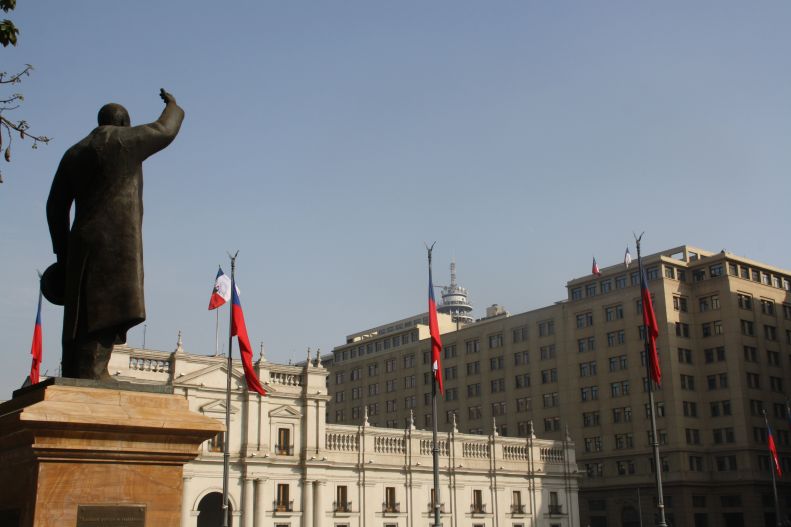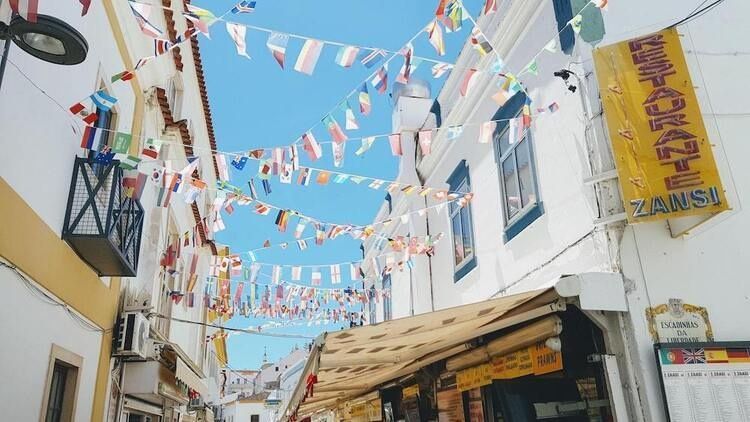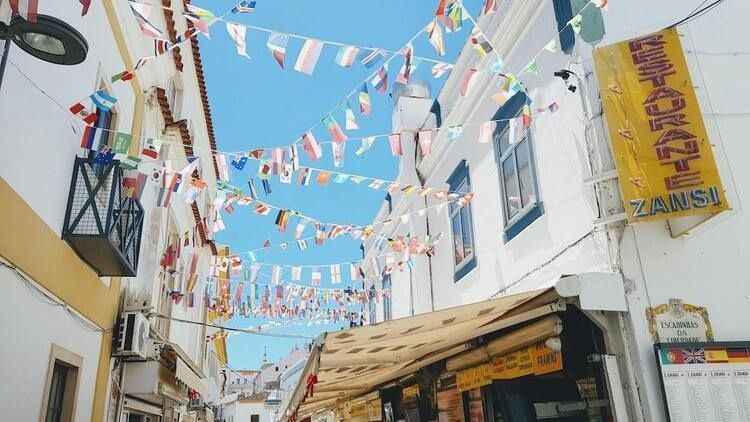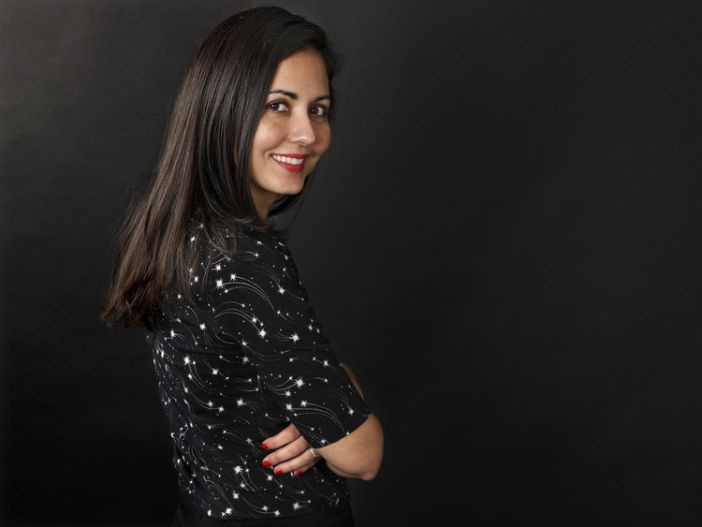Latin American and Caribbean Studies
Fulbright-Hays Awardees Prioritize Community Engagement

100% Success Rate This Year
Five Cornell PhD students have received Fulbright-Hays Doctoral Dissertation Research Abroad awards, with support from Einaudi.
Additional Information
Shadow of Former Dictatorship Hangs Heavy in Chile

Raymond Craib, LACS
The government of Chile announced a national search plan to find the remains of people who disappeared under the country’s military rule from 1973 to 1990.
“It has been a long time coming, but the Chilean state is now – on the cusp of the 50th anniversary of the U.S.-backed military coup d’état that ushered in 17 years of military rule – aiding in efforts to find those who were disappeared by the regime of Augusto Pinochet. It is a reminder of how heavy the shadow of the dictatorship looms in the country to this day," says Raymond Craib.
Additional Information
Spanish Conversation Hour

November 29, 2023
5:00 pm
Stimson Hall, G25
Come to the LRC to practice your language skills and meet new people. Conversation Hours provide an opportunity to use the target language in an informal, low-pressure atmosphere. Have fun practicing a language you are learning! Gain confidence through experience! Just using your new language skills helps you learn more than you might think. Conversation Hours are are open to any learner, including the public. Campus visitors and members of the public must adhere to Cornell's public health requirements for events.
Additional Information
Program
Latin American and Caribbean Studies
Information Session: Dissertation Proposal Development Program

October 23, 2023
4:45 pm
The Einaudi Dissertation Proposal Development Program (DPD) supports 12 PhD students annually by offering seminars, workshops, mentoring sessions, and up to $5,000 for summer research. Applicants’ research projects must focus on global issues, but the proposed research setting may be international or domestic.
In this session, you'll learn more about the details of the program and advice on the application process.
Register for event here.
***
The Mario Einaudi Center for International Studies hosts info sessions for graduate and for undergraduate students to learn more about funding opportunities, international travel, research, and internships. View the full calendar of fall semester sessions.
Additional Information
Program
Einaudi Center for International Studies
Reppy Institute for Peace and Conflict Studies
East Asia Program
Southeast Asia Program
Latin American and Caribbean Studies
Institute for African Development
Institute for European Studies
South Asia Program
Information Session: Fulbright for Undergraduates

October 26, 2023
4:45 pm
The Fulbright U.S. Student Program supports U.S. citizens to study, conduct research in any field, or teach English in more than 150 countries. Students who wish to begin the program immediately after graduation are encouraged to start the process in their junior year. Recent graduates are welcome to apply through Cornell.
The Fulbright program at Cornell is administered by the Mario Einaudi Center for International studies. Applicants are supported through all stages of the application and are encouraged to start early by contacting fulbright@einaudi.cornell.edu.
Register for the info session.
***
The Mario Einaudi Center for International Studies hosts info sessions for graduate and for undergraduate students to learn more about funding opportunities, international travel, research, and internships. View the full calendar of fall semester sessions.
Additional Information
Program
Einaudi Center for International Studies
Reppy Institute for Peace and Conflict Studies
East Asia Program
Southeast Asia Program
Latin American and Caribbean Studies
Institute for African Development
Institute for European Studies
South Asia Program
Information Session: Internships in Africa & Latin America

October 19, 2023
4:45 pm
Uris Hall, G-08
Learn about global summer interships from the Institute for African Development and Latin American and Caribbean Studies program, part of the Mario Einaudi Center for International Studies.
Annual internships from these programs send undergraduate students to Ghana, Zambia, or Ecuador for 6-8 weeks over the summer to engage in hands-on fieldwork. Attend this session to learn about applications for the coming year.
Register here.
***
The Mario Einaudi Center for International Studies hosts info sessions for graduate and for undergraduate students to learn more about funding opportunities, international travel, research, and internships. View the full calendar of fall semester sessions.
Additional Information
Program
Einaudi Center for International Studies
Reppy Institute for Peace and Conflict Studies
Latin American and Caribbean Studies
Institute for African Development
Institute for European Studies
Information Session: Fulbright for Graduate Students

October 18, 2023
4:45 pm
In this info session for graduate students, learn about Fulbright at Cornell.
The Fulbright U.S. Student Program provides full funding for graduate and professional students conducting research in any field or teaching in more than 150 countries. Open to U.S. citizens only.
The Fulbright-Hays Doctoral Dissertation Research Abroad program supports doctoral students conducting research in modern languages or area studies for six to 12 months. Open to U.S. citizens and permanent residents of the United States. Travel to Western European countries is not eligible.
Register for the information session.
***
The Mario Einaudi Center for International Studies hosts info sessions for graduate and for undergraduate students to learn more about funding opportunities, international travel, research, and internships. View the full calendar of fall semester sessions.
Additional Information
Program
Einaudi Center for International Studies
Reppy Institute for Peace and Conflict Studies
East Asia Program
Southeast Asia Program
Latin American and Caribbean Studies
Institute for African Development
Institute for European Studies
South Asia Program
Information Session: Undergraduate Opportunities in Latin American and Caribbean Studies

October 17, 2023
4:45 pm
Uris Hall, G-08
Get connected with the Latin American and Caribbean Studies program (LACS) to learn more about undergraduate opportunities at this information session.
LACS offers an interdisciplinary minor, summer internships, summer language grants, and other funding opportunities. The undergraduate minor spans across disciplines and allows you to explore the history, culture, government, politics, economy, and languages of Latin America and the Caribbean.
Register here.
***
The Mario Einaudi Center for International Studies hosts info sessions for graduate and for undergraduate students to learn more about funding opportunities, international travel, research, and internships. View the full calendar of fall semester sessions.
Additional Information
Program
Einaudi Center for International Studies
Latin American and Caribbean Studies
Information Session: Graduate Opportunities in Latin American and Caribbean Studies

October 16, 2023
4:45 pm
Uris Hall, G02
Get connected with the Latin American and Caribbean Studies program (LACS) to learn more about graduate opportunities at this information session.
Opportunities include research funding like the LACS summer research grant, which provides between $500 to $1,500 for predissertation work in Latin America or the Caribbean. For specialized research in planning or gender, the Lourdes Benería Award provides support for summer research costs.
At this session, you will also learn about the Latin American studies graduate minor.
Register for the event here.
***
The Mario Einaudi Center for International Studies hosts info sessions for graduate and for undergraduate students to learn more about funding opportunities, international travel, research, and internships. View the full calendar of fall semester sessions.
Additional Information
Program
Einaudi Center for International Studies
Latin American and Caribbean Studies
You Glow In The Dark (Ustedes Brillan en lo Oscuro): A conversation, Uris Hall G08, In-Person

November 14, 2023
12:20 pm
Uris Hall, G08
Latin American and Caribbean Studies Program (LACS) Seminar Series.
Bolivian writer Liliana Colanzi will read excerpts from her short story book Ustedes brillan en lo oscuro (You Glow in the Dark, New Directions 2024, winner of the Ribera del Duero Prize 2022), and will talk to Rosamaría Durán about her relationship with science fiction, horror, and the fantastic, and her interest in nuclear power and timescales. There will be a Q&A. Conducted in Spanish.
Liliana Colanzi is an Assistant Professor of Latin American Literature at the Department of Romance Studies at Cornell University. Her research focuses on popular genres in Latin American literature (science fiction, horror, the fantastic); she teaches creative writing in Spanish as well. She has published the short story books Vacaciones permanentes (2010), Nuestro mundo muerto (Our Dead World, Dalkey Archive Press, 2017), and Ustedes brillan en lo oscuro (You Glow in the Dark, New Directions, 2024), which won the Ribera del Duero prize in 2022. In 2015 she won the Aura Estrada prize (Mexico). The Hay Festival Cartagena included her among the best Latin American writers under 40 (Bogota39, 2017).
Additional Information
Program
Einaudi Center for International Studies
Latin American and Caribbean Studies
